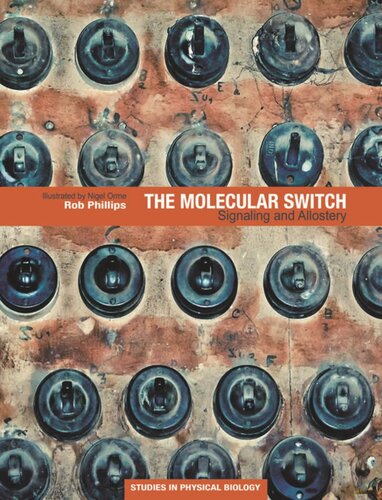

Most ebook files are in PDF format, so you can easily read them using various software such as Foxit Reader or directly on the Google Chrome browser.
Some ebook files are released by publishers in other formats such as .awz, .mobi, .epub, .fb2, etc. You may need to install specific software to read these formats on mobile/PC, such as Calibre.
Please read the tutorial at this link: https://ebookbell.com/faq
We offer FREE conversion to the popular formats you request; however, this may take some time. Therefore, right after payment, please email us, and we will try to provide the service as quickly as possible.
For some exceptional file formats or broken links (if any), please refrain from opening any disputes. Instead, email us first, and we will try to assist within a maximum of 6 hours.
EbookBell Team

4.3
18 reviewsA signature feature of living organisms is their ability to carry out purposeful actions by taking stock of the world around them. To that end, cells have an arsenal of signaling molecules linked together in signaling pathways, which switch between inactive and active conformations. The Molecular Switch articulates a biophysical perspective on signaling, showing how allostery—a powerful explanation of how molecules function across all biological domains—can be reformulated using equilibrium statistical mechanics, applied to diverse biological systems exhibiting switching behaviors, and successfully unify seemingly unrelated phenomena.
Rob Phillips weaves together allostery and statistical mechanics via a series of biological vignettes, each of which showcases an important biological question and accompanying physical analysis. Beginning with the study of ligand-gated ion channels and their role in problems ranging from muscle action to vision, Phillips then undertakes increasingly sophisticated case studies, from bacterial chemotaxis and quorum sensing to hemoglobin and its role in mammalian physiology. He looks at G-protein coupled receptors as well as the role of allosteric molecules in gene regulation. Phillips concludes by surveying problems in biological fidelity and offering a speculative chapter on the relationship between allostery and biological Maxwell demons.
Appropriate for graduate students and researchers in biophysics, physics, engineering, biology, and neuroscience, The Molecular Switch presents a unified, quantitative model for describing biological signaling phenomena.